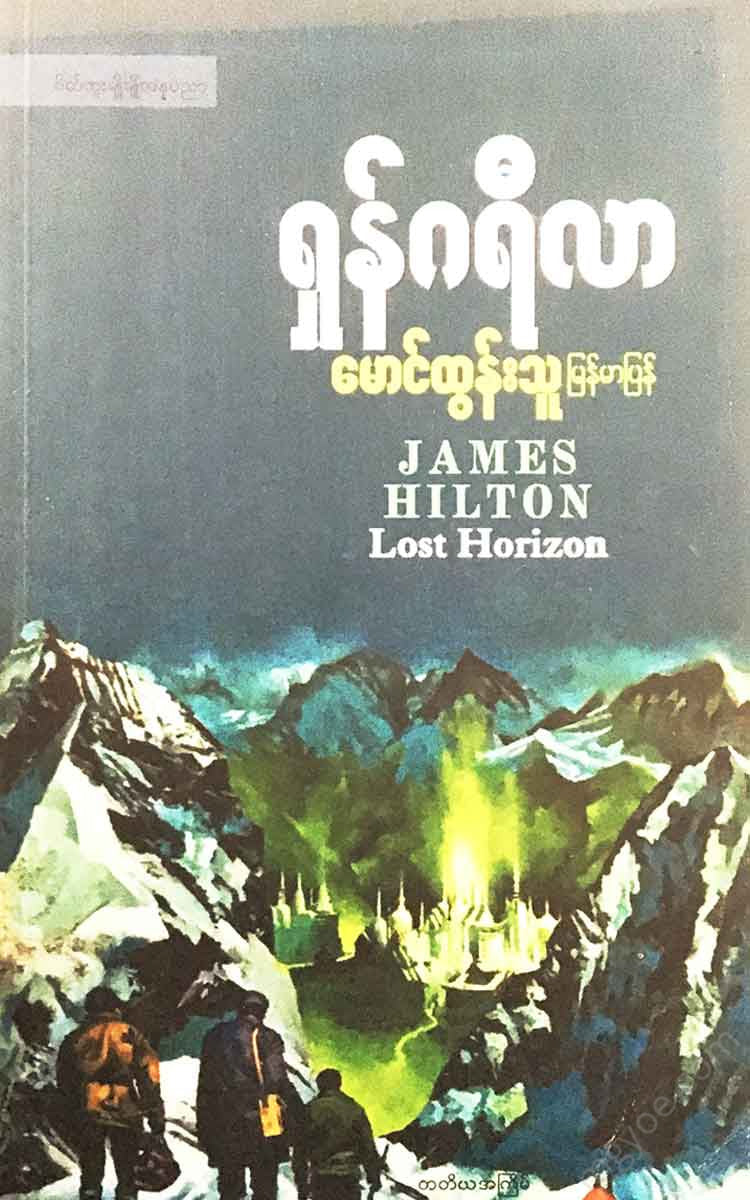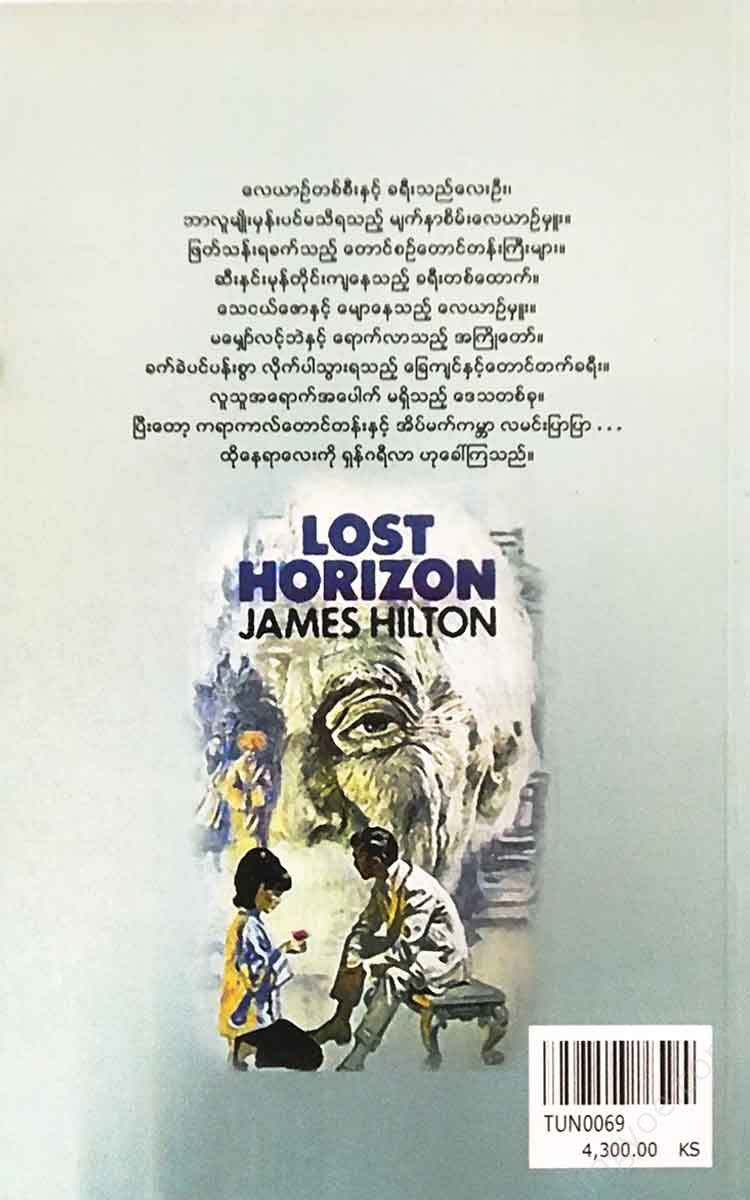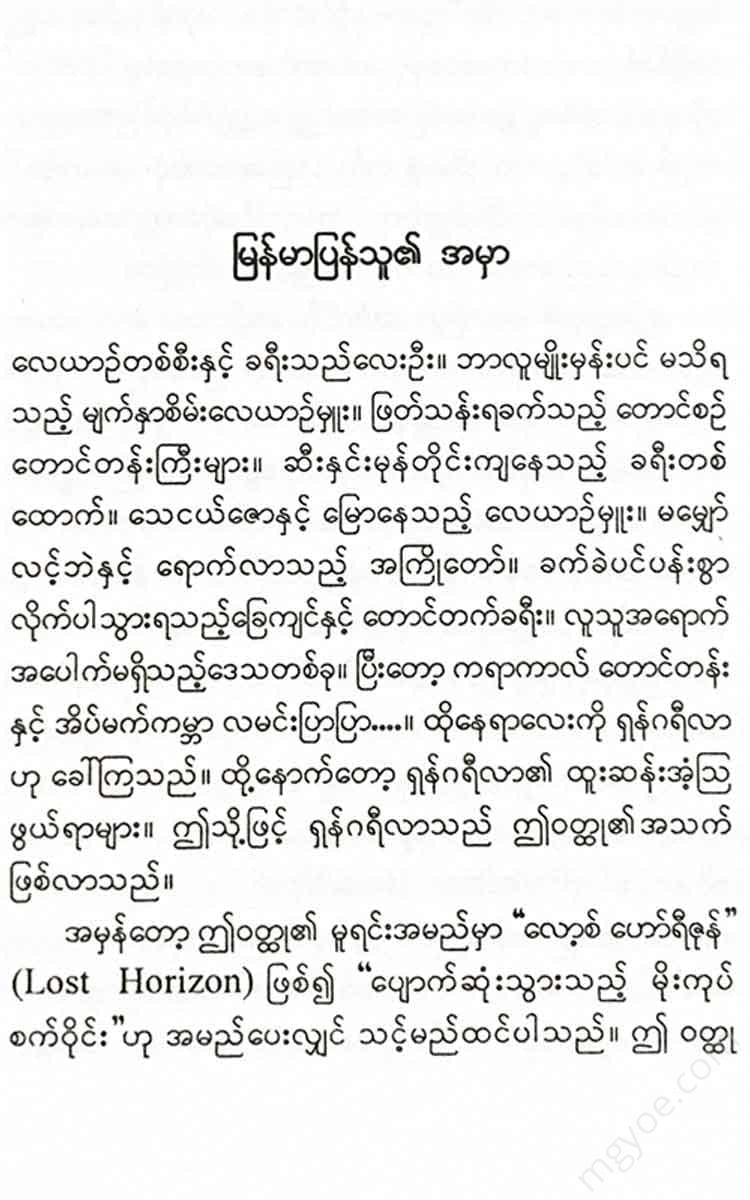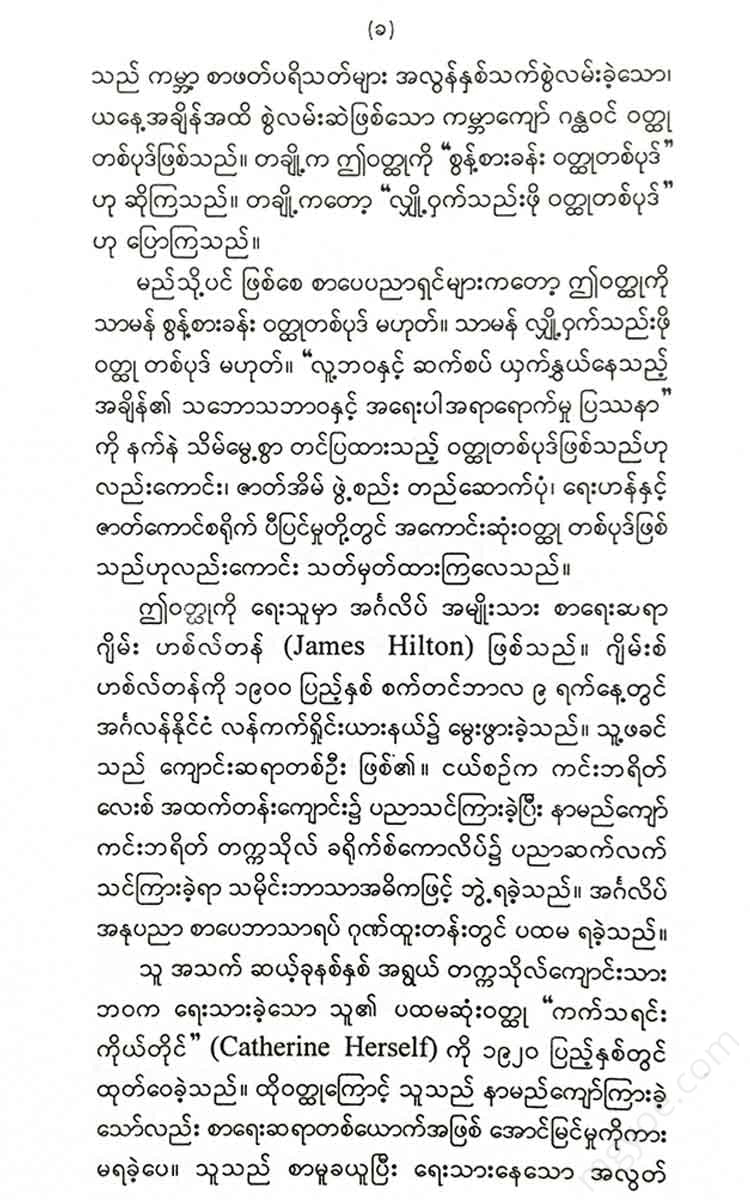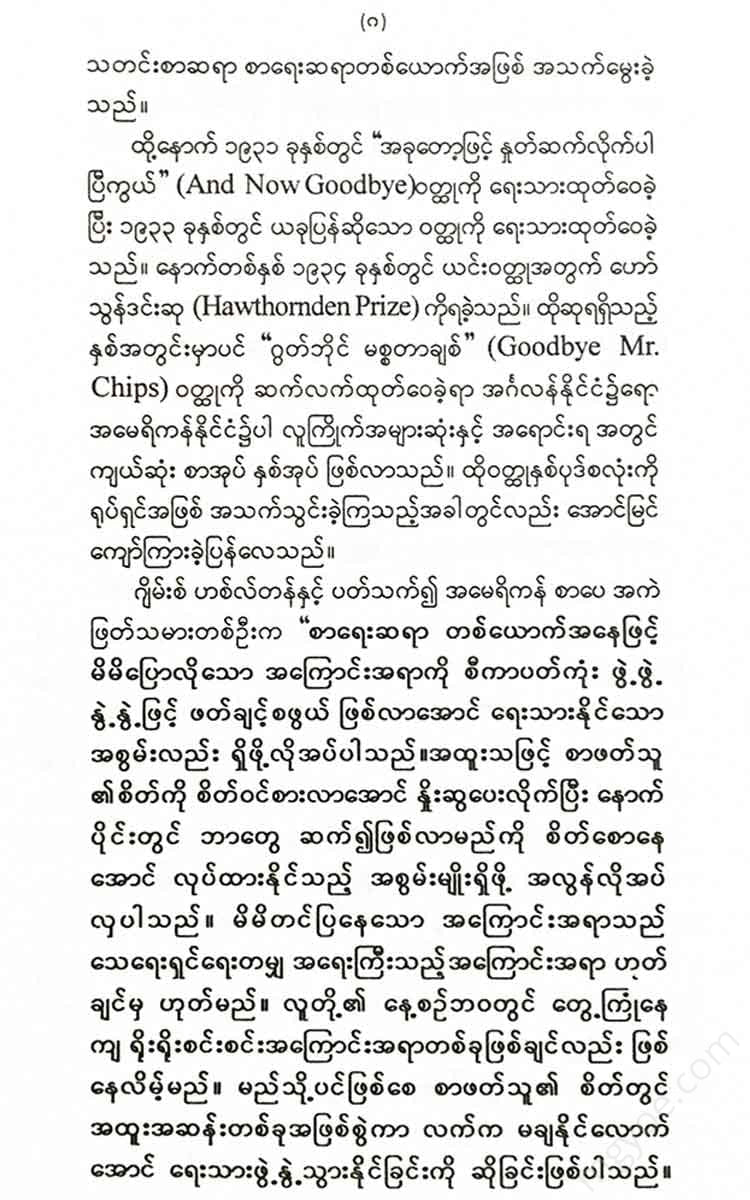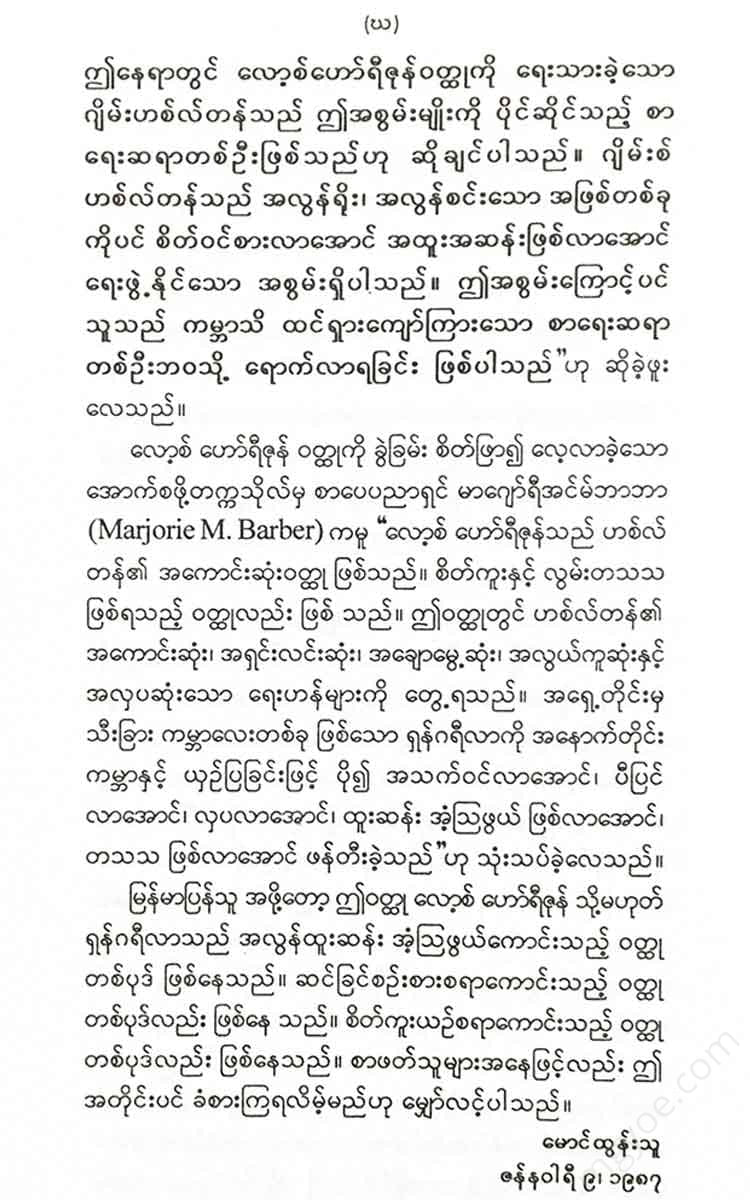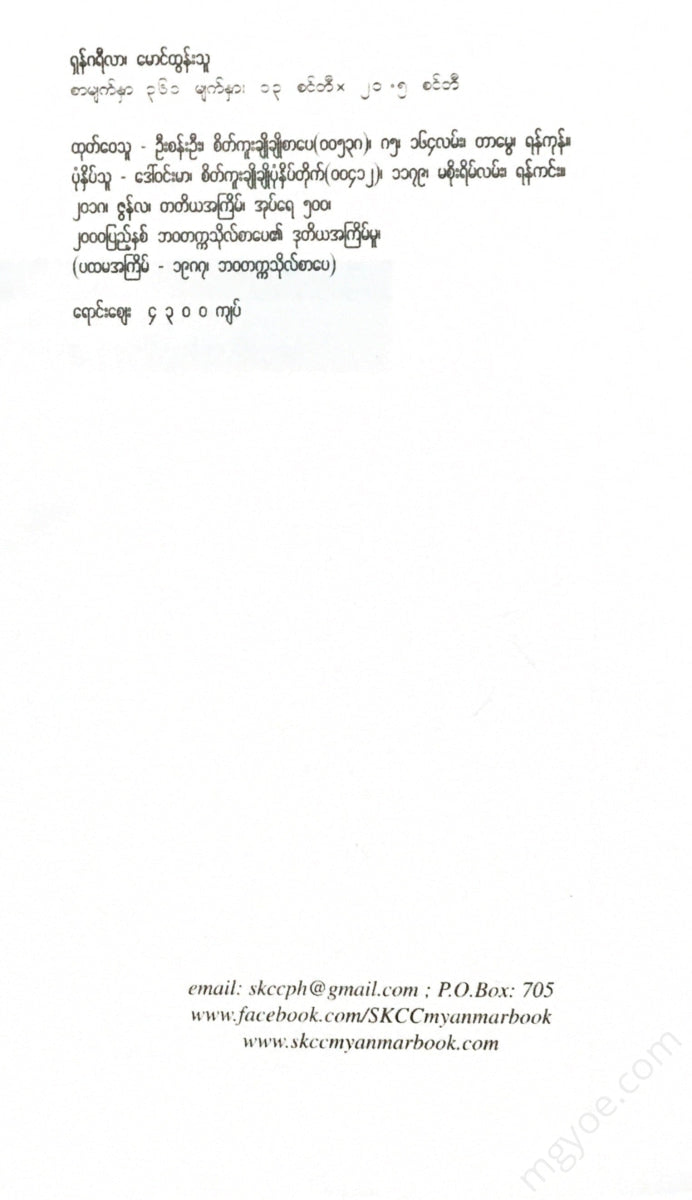စိတ်ကူးချိုချိုစာပေ
Maung Tun Thu - Shangri-La
Maung Tun Thu - Shangri-La
Couldn't load pickup availability
The smoldering cigars are slowly getting shorter. Our group is carefully controlling their words so that there are no mistakes between each other. When school friends meet again after a long time, they usually have different ideas and opinions. Then there are misunderstandings between each other. These misunderstandings often lead to arguments. Even when there are arguments, they tend to hurt each other. We don't want this to happen. That's why we control our words as much as possible so that this doesn't happen.
In our group, Rutherford makes his living by writing novels. Wayne Lin has become an embassy secretary. The reason we are meeting like this is because Secretary Wayne Lin invited us to dinner at a hotel near the Tempelhof station in Berlin. It is not a very generous dinner. However, Wayne Lin, as a diplomat who has often met and experienced such receptions, is hospitable and does not fail to fulfill his duty.
In fact, the reason we had the opportunity to have such a meal together was because three English schoolmates, who were still living their bachelor lives, happened to meet by chance in a foreign capital. As far as I remember, Waing Lin had a tendency to show off even when he was young, and I can only assume that this tendency has not disappeared to this day. Especially as a secretary who has received the MVO degree, which is awarded by His Majesty to such outstanding people, I think that this tendency is likely to be even more persistent.
To be honest, I like Rutherford better. He was skinny as a student. He was as intelligent as a skinny man. He was the one who alternately received my bullying and my patronage. Now he is not as skinny as he used to be. He looks more mature and stable than before. He not only earns more than either of us, but his life seems to be more interesting than ours. Seeing his unique situation, both Wai Lin and I are jealous.
In any case, the evening was not a dull one. The sight of the German Lufthansa airliners landing and parking at the airport, one after another from various parts of Central Europe, was a very beautiful sight for us. When the rain stopped and the lights came on, the scene became even more dramatic and beautiful.
One of the planes that landed was an English plane. The pilot of the plane, in full flight gear, passed by our table. He glanced at Wai Lin and saluted. At first, Wai Lin didn’t seem to recognize him. In that moment, there were voices greeting the pilot. We invited him to sit at our table.
He was a friendly, cheerful young man, and his name was Sanders. When he was in full flight attire and wearing a pilot's hat, Wai Lin apologized, explaining his habit of not knowing who was who.
Then Sanders laughed. “Oh, yes, I know. Don’t forget I used to live in a bus,” he replied. When he heard that, Wai Lin laughed too. But not in a loud way. Then the conversation turned to other topics.
The arrival of Sanders made our party more cheerful, and we all drank a good deal of beer. At about ten o'clock at night, Sanders walked over to a table near us and was talking to a friend of his. Rutherford, intending to keep the conversation going, asked Sanders,
“By the way, I heard you talking about Busku earlier. I know a little bit about that place. The way you talk about it, it sounds like something happened there. What happened?”
Sanders smiled. "Oh, I had an exciting experience. I was in the Air Force at the time."
He is not a young man who keeps things a secret.
“Here’s the story. Was it an Afghan or an Afridi, I can’t say exactly what race it was. A man hijacked one of our planes. You can imagine how bad it was. It was one of the most daring things I’ve ever heard of. This guy hid in the driveway for the pilot to come. When the pilot arrived, he jumped down and took off his clothes. Then he went into the cockpit. No one saw him go in. The exit signals were all the same. We pilots drove as they drove and it went up smoothly. But the problem was different. The problem was that the plane never came back.”
Rutherford seemed very interested in Sanders's words. "When did that happen?"
"It happened about a year ago, I think. It must have been in 1931. We had a revolution there, and we had to transport civilians to Peshawar by bus. You remember that incident, I think. There was a riot there at that time. I never expected it to happen like that. But it did." Rutherford's interest grew.
"I don't think there's any way you could have assigned a single person to a plane at that time and under those circumstances."
“Yes, we have a lot of responsibilities. It is like a big plane. The engine of this plane is specially made for the Maharaja of the state. Even people from the Survey of India have used this plane to survey the highest mountains in Kashmir.” “That plane never reached Peshawar, right?”
"Yes, it never reached Peshawar. It never reached any other town or village. That's the most bizarre part of this whole thing. If the person who took the plane was a local, he would have taken it into the mountains. The idea was to kidnap the passengers on board. Whatever. I think they're all dead. As you know, on the border. There are a lot of mountains that could have hit a plane. And since the plane left, we haven't heard anything more about it."
"Yes, I know about this country too. How many passengers were on the plane at that time?"
“I think there were four, three men and one woman who was a missionary.”
"One of the three men's name is Conway, right?"
Sanders is surprised.
“What... how, well... yes, Kyaw Conway, do you know him?”
“He and I were classmates who went to the same school,” Rutherford replied. He couldn't help but give an answer, but it seemed like he was not satisfied.
“He was a happy man. He never had any problems with the bus,” Sanders continued. Rutherford nodded.
"Yes, he's a good-natured man. But the incident was so strange. It was so strange..." He seemed to be about to say everything in his mind, but then he controlled himself. Then, after a while, he continued.
"This incident isn't even in the newspapers. If it were, I would read it. How did it happen?"
Sanders's face showed discomfort. I think Sanders' face was red.
“To be honest, I think I've said more than I should have said about this,” he replied.
Then he continued, “There is one thing. At this point, I don’t think this matter will become a problem. Among the military officers, this news is old news, a piece of news. Well, it’s good that the market is in the market. In fact, they are covering up this news. I mean, they are covering up what happened. It’s hard to say publicly because it’s so unbelievable. The government announced that a plane was missing. They also gave the names of the passengers. It’s not a satisfactory news for the interest of ordinary civilians.”
At that moment, a man who had been walking to the other table returned to us. Sanders looked at him with a pleading expression.
"These friends of mine are asking about the match between the two of you. I've told you a little bit about what happened on the bus. I can't say enough about it. What do you think?"
Wai Lin didn't answer immediately, but remained silent for a long time. It was clear that he was trying to find a comfortable balance between work and friendship. "I can't help but think," these words finally came out of his mouth.
"This matter should be told like a story, so it's a bit sad."
He also muttered..
"I always thought that you Air Force people would maintain your dignity by keeping your mouth shut about anything that should be kept secret."
Wai Lin indirectly accused Sanders in a stern tone. Then, with a very calm and dignified expression, he turned to look at Ruth Ford.
“You would like to know. You are not wrong. But I think you will understand that not everything that happens in these border areas can be made public.”
"On the other hand, isn't it natural for a person to want to know the truth?" Rutherford responded in a stern tone.
"If you want to know something, and you have good reason to do so, you don't have to hide anything. I was in Peshawar when the matter happened. That's one thing I can tell you for sure. So I have to ask. Do you know Conway well? I mean, have you known him since you were students?"
"We dated a little while at Oxford University. Later, we only met occasionally when we were going to and from school. Did you date him for a long time?"
"I met him when I was on duty in Angora. I met him once or twice."
This sentence came out.
"I have to tell this story like a story, so it's a bit sad," he muttered.
"I always thought that you Air Force people would maintain your dignity by keeping your mouth shut about anything that should be kept secret."
Wai Lin indirectly accused Sanders in a stern tone. Then, with a very calm and dignified expression, he turned to look at Ruth Ford.
“You would like to know. You are not wrong. But I think you will understand that not everything that happens in these border areas can be made public.”
"On the other hand, isn't it natural for a person to want to know the truth?" Rutherford responded in a stern tone.
"If you want to know something, and you have good reason to do so, you don't have to hide anything. I was in Peshawar when the matter happened. That's one thing I can tell you for sure. So I have to ask. Do you know Conway well? I mean, have you known him since you were students?"
"We dated a little while at Oxford University. Later, we only met occasionally when we were going to and from school. Did you date him for a long time?"
"I met him when I was on duty in Angora. I met him once or twice."
“Do you like him?”
"I think he's a great guy. But he's too easygoing."
Rutherford smiled.
“That’s true. He was a very distinguished man in his university days. He was a top sportsman. He was a leader in the student union, he won many awards and was very famous. He was one of the best pianists I have ever heard of. He was a wonderful man. He was like Joe Watt who was at Oxford in the Victorian era. But after he left university his name was lost. His career seemed to have been interrupted by the war. Whatever it was, he was a man who made good use of his youth.”
“It’s true that something happened to him,” Waing Lin replied.
“But it wasn’t a big deal. It wasn’t bad when he got into the army. He was a D.S. while he was serving in France. I think he went back to work at Oxford after the war. I don’t know if he was a lecturer or a professor. I heard that he went to the East after that. When he came back from those countries, he got the job he wanted easily because of his knowledge of the East and his ability to speak the language. He had to move around a lot and serve.”
Rutherford smiled once more, his smile taking on a more serious tone than before.
“Well, isn’t work everything? What extraordinary qualities can a person have who spends his time sitting in a sub-office of the Foreign Office reading incoming letters, writing short notes, signing brief autographs, and going into the ambassador’s office to prepare tea? History never records such a nation.”
"Oh, sir, he works at the consulate. He's not in charge of any diplomatic relations department."
Wayne Lin said in a very arrogant tone. It was obvious that he did not care at all about Ruth Ford's sarcastic tone. Ruth Ford, however, took it seriously and did not listen to what Wayne Lin was saying and stood up. In fact, it was quite late. I also got up and said goodbye. Wayne Lin did not seem to care much about our greeting. | Sanders, unlike him, greeted us warmly and with a smile. He said that he hoped that we would meet again someday.
I had to get up early in the morning to catch the train to Europe, so I was in a situation where I had to waste time. While we were waiting for the taxi, Rutherford invited me to his hotel to spend some time with him. He said that he had a separate living room in his room, so we could sit and talk in peace. I replied that if he said that, it would be very convenient for me.
"That's better. We can keep talking about Conway. If you're not tired, I'd like to keep talking about him."
He said.
I was not a close acquaintance of Conway, but I would not be bored if I spoke of him, I replied.
“He left after my first year at university. I never saw him again. But he did me one special favor. He helped me when I was a new student. It was a small thing. But I never forgot it. I always remember it,” Rutherford agreed. “Yes, I was quite close to him. I never met him much. I never really got to know him personally.”
Then we were both silent. During this quiet time, we both thought about someone we had never met before, but who always reminded us of us. I have often met people who, even though I had only seen them once or twice, always reminded me of them so much that I could not forget them.
